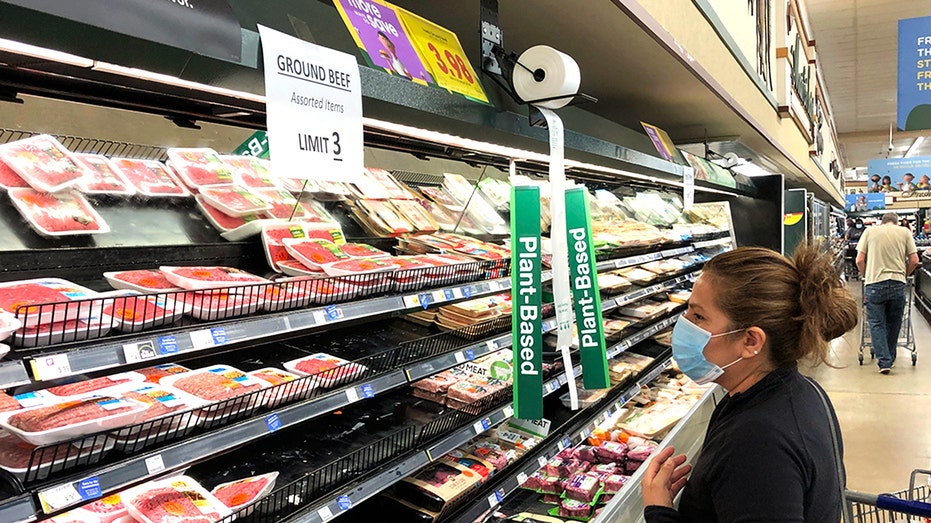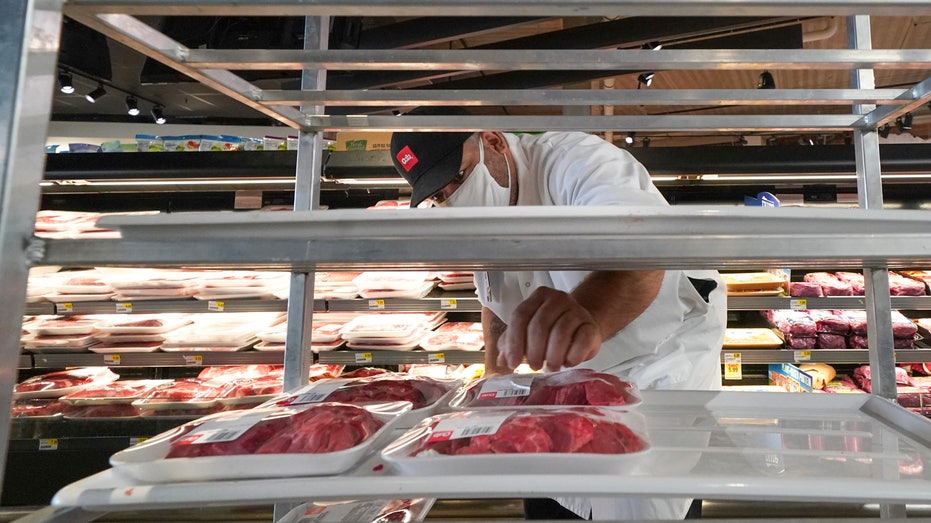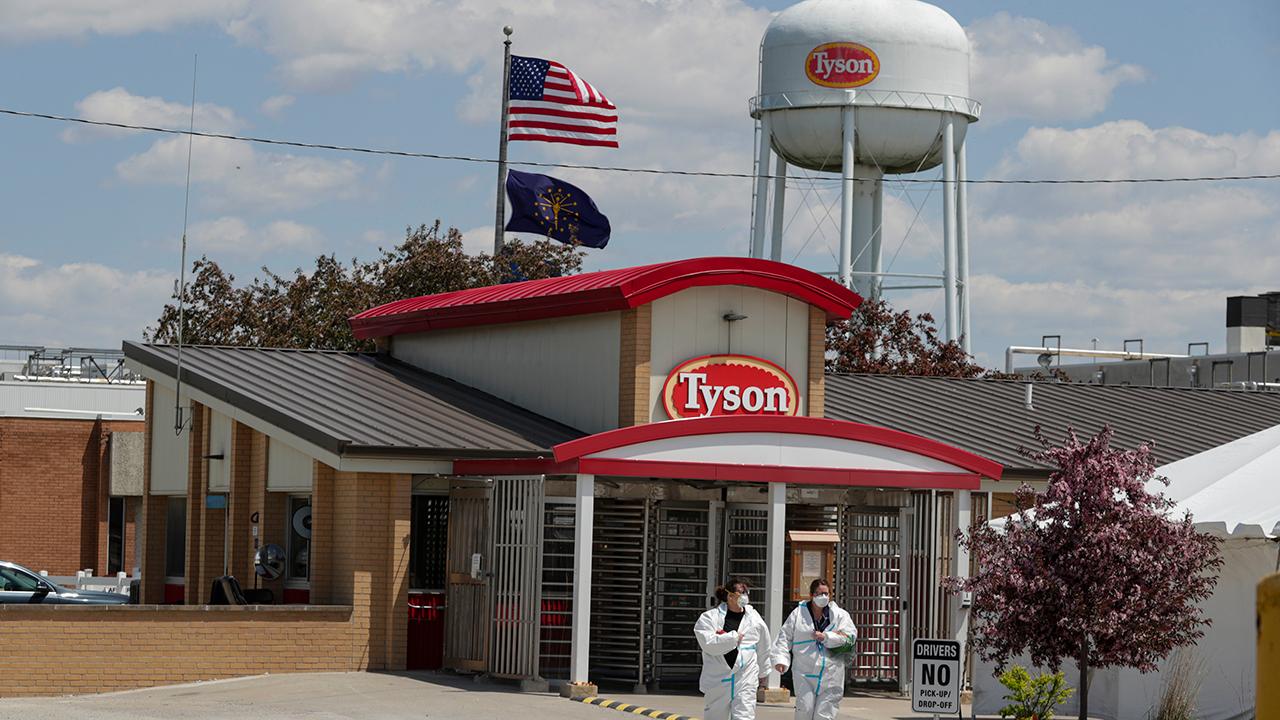Tyson reduces some beef prices as coronavirus pushes grocery-store costs higher
The move will help keep beef affordable
Get all the latest news on coronavirus and more delivered daily to your inbox. Sign up here.
Tyson Foods Inc. is lowering some prices it charges supermarkets and restaurants for beef, after coronavirus-driven disruptions at meatpacking plants have led to a surge in meat costs.
The Arkansas company, which processes about one-fifth of the nation's beef, plans to reduce prices for ground beef, roasts and other beef products by as much as 20% to 30% for sales made this week to restaurants, grocery stores and other customers. The move will help keep beef affordable, said Noel White, Tyson's chief executive.
| Ticker | Security | Last | Change | Change % |
|---|---|---|---|---|
| TSN | TYSON FOODS INC. | 65.26 | +0.06 | +0.09% |
Tyson, the biggest U.S. meat company by sales, has a lot riding on the price of beef. Beef represented more than one-third of the company's $42.4 billion in sales last year. Nearly half of the company's beef is sold to grocery stores and food retailers, the company estimates.
Since the beginning of March, coronavirus outbreaks among meatpacking workers forced the temporary closure of about two dozen major U.S. meat processing plants. The U.S. Department of Agriculture estimated that nationwide production of beef, pork and other red meat last week was about 28% lower than the same period last year, and the agency projected Tuesday that beef production in the second quarter of this year would be one-fifth below first-quarter levels.

A shopper looks beef at a Kroger store in Atlanta underneath a sign limiting shoppers to three packages of ground beef on Tuesday, May 5, 2020. (AP Photo/Jeff Amy)
Grocery stores and restaurants are paying more as a result. Wholesale ground-beef prices this week topped $6.21 a pound, according to the USDA, more than triple their cost at the beginning of March. Some steak prices have doubled over the past two months.
Tyson and other beef processors also face scrutiny over their profits. Despite beef growing more expensive in supermarkets, cattle prices have tumbled in the U.S. Plains states, prompting federal officials to investigate the way companies like Tyson price and purchase cattle.
SENATORS WANT CORONAVIRUS MONEY FOR HOG FARMERS FORCED TO 'DEPOPULATE' HERDS
Discounting beef products will help preserve consumer demand as processing plants resume normal operations, which will benefit Tyson and cattle producers, said Tyson's Mr. White. "We're doing this because we want to help keep beef on family tables," he said.
Shoppers dealing with economic turmoil will often downgrade from a rib-eye steak to a strip steak, or to a burger, said Don Close, senior protein analyst for agricultural lender Rabobank. "Clearly with the price run-up we've seen in recent weeks, we're seeing demand erosion," he said.

Billy Otero stocks the meat shelves at a Cub Foods on Monday, May 4, 2020, in Minneapolis during the coronavirus outbreak. (Glen Stubbe/Star Tribune via AP)
This week the USDA forecast that U.S. consumers would reduce beef consumption by 5.9% this year, compared with the slight annual decline the agency projected a month ago.
Skogen's Foodliner Inc., parent of the Festival Foods grocery chain, is raising retail prices for beef by "a couple dollars a pound" this week after previously holding out, said CEO Mark Skogen.
"We can't sit at the prices from two months ago," Mr. Skogen said, adding that he expects to increase beef prices again next week.
Beef costs increased about 30% this week for grocery chain Smart & Final Stores Inc., CEO David Hirz said. He said that the higher prices ultimately will get passed to consumers, though Smart & Final won't change retail pricing until its competitors do.
Smart & Final's beef and pork sections are about 60% to 65% full today, Mr. Hirz said, but shoppers are buying more frozen hamburger patties and other items.
GET FOX BUSINESS ON THE GO BY CLICKING HERE
Restaurant company Ruth's Hospitality Group Inc., parent of Ruth's Chris steakhouses, said last week that its spending on beef has nearly doubled at times in recent weeks as a result of beef plant outages and slowdowns. Burger King franchisee Carrols Restaurant Group Inc. estimated its beef costs are about one-fifth higher than they were earlier this year, though the company isn't raising prices for consumers in response, executives said.
The USDA in April said it would investigate meatpackers' cattle-buying activities following complaints from some cattle groups, which alleged that meatpackers have used coronavirus-related plant shutdowns to drastically reduce the prices they pay for cattle. Meatpackers have said that the plant closures have shrunk the market for cattle, while demand surges at grocery stores are making beef more scarce, leading to higher wholesale prices.
CLICK HERE TO READ MORE ON FOX BUSINESS
A Tyson spokesman said that the company doesn't believe in anticompetitive or predatory conduct, and that hundreds of millions of dollars in added costs related to Covid-19 have also affected wholesale meat pricing. The company in March paid a temporary premium to some cattle suppliers.




















